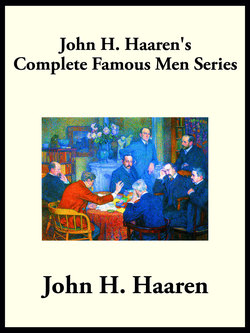Читать книгу John H. Haaren’s Complete Famous Men Series - John H. Haaren - Страница 36
На сайте Литреса книга снята с продажи.
The Fall of Greece
ОглавлениеThe states of Greece tried again and again to throw off the Macedonian yoke. Unfortunately, however, they often quarreled with one another and were not united against Macedonia. For this reason the kings of that state kept their place as masters of Greece for another hundred years.
Then the Romans invaded the country, and in a battle fought near a town called Pydna the Macedonians were defeated and their king Perseus was taken prisoner. This brought the Macedonian kingdom to an end. Macedonia was made part of the Roman Empire and men were sent from Rome to rule it.
Epirus was next captured. A hundred and fifty thousand of its inhabitants were sold into slavery and the state was made a Roman province.
After the fall of Macedonia the other states of Greece still continued fighting with one another. So in about twenty years (B.C. 146) a Roman army was sent against them. A battle was fought near Corinth in which the Greeks were completely defeated.
Corinth at that time was one of the richest and most beautiful cities in the world. After the battle the Roman general let his soldiers enter the houses and take what they pleased. Pictures, marble statues and jewelry were taken and shipped to Rome. It is said that two of the rough Roman soldiers played a game of dice on one of the finest pictures,—so little did they value works of art.
Two thousand of the men of Corinth were put to death by the Romans, and the women and children were made slaves. After the buildings of the city had been plundered they were set on fire.
And now Athens, Thebes, Sparta and the other Greek states became, like Macedonia, parts of the Empire of Rome.
From the rule of Rome Greece passed, in the Middle Ages, under the rule of Turkey, and it was only about seventy-five years ago that she revolted from Turkey and became once more an independent country.
If ever you go to Greece, as thousands of people do, to visit the places where her great men lived, you will see little but ruins. The columns of the temples are broken, the stones of their walls lie scattered on the ground.
And yet Greece, even amid ruin and decay, is still teaching the world. Many of the words that stand for branches of learning in our language to-day are Greek words. Such words are arithmetic and mathematics. They show plainly that the first teachers of mathematics in Europe were Greeks. Gymnasium and athletics are also Greek words. They show that the Greeks set us the example of running races, wrestling, jumping, throwing quoits and doing other such things to make our bodies strong. Poet, too, and poem are Greek, and remind us that the Greeks taught us how to write poetry. Grammar, rhetoric and geography are Greek words. So are logic, astronomy and surgery. These and hundreds of other words in daily use show how much we have inherited from the Greeks.
Although the old-time glory of Greece has waned, the light of art and science which she kindled in the world grows brighter as time rolls on.
